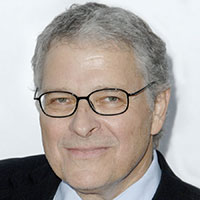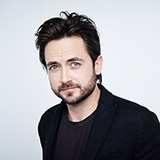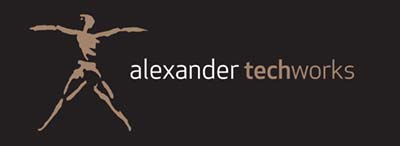Actors & Performers
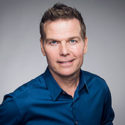
As a professional athlete and now a performer on a different stage, I know the importance and the power of the body. The body is how we communicate 24 hours a day. Your words may lie, but your body always tells the truth. Jean-Louis Rodrigue has given me a connection to the earth which may sound simple and basic at first glance, but that connection between my feet and the earth gives me the power and security and permission to express myself as an actor on a whole new level. Your body will do whatever you ask it to do. It will morph into whatever you like. It’s like magic. Jean-Louis, gently and over time, has taught me to transform my body into an open, fully expressed vessel. At first this openness is disconcerting because you feel so vulnerable. That’s it! Bingo! That is your power. Jean-Louis has uncovered my power.
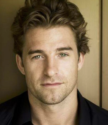
I could not and would not take on any serious role without working with Jean-Louis first. He effortlessly takes me to places I did not know or believe I could go. He blasts past my fears and self-consciousness with great love and enthusiasm and somehow gets to the heart of the thing -- the thing I was searching to find but didn't know how to get there on my own. If you want to take that next step as an artist, wherever you're at, I can't recommend working with Jean-Louis more.

The second I land any gig -- TV, film, or theater -- my first call is to Kristof Konrad. I know he will load me with so many ideas and inspirations, not to mention an arsenal of animal imagery to conjure, that going to work will be a playground where I can run around and play freely. I have sent gifted actor friends worlwide to Kristof and Jean-Louis, who all agree that their work is invaluable to us as artists.

Jean-Louis is a genius Alexander Technique teacher. I work with him before each character I work on. I love, love, love animal work and what the Alexander Technique has brought into my life. The work allows me to base my characters not just off of people and experiences I’ve had, which are limited -- because no matter how much I want to believe I lead a cultured, open life, I’m in a bubble. So, it opens your world up.
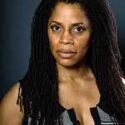
I have worked privately and in class with Kristof Konrad for 13+ years. Without fail, in some new way I am always left with the experience of perceiving myself more profoundly as an actor, as a woman. Kristof facilitates my exploration with sweet humor and playfulness, enabling with a word or a simple touch the whole world of awareness and relaxation. This creates a full openness in my whole instrument as an actor. And after the work, there is always the felt experience of being available. I use Kristof & Jean-Louis' mantra -- "I have time" -- so many times in my work, mumbled under my breath during a take or exhaled on my way into an audition.

Jean-Louis’ studio continues to be one of the most rewarding places in my life -- personally, professionally, and spiritually. By exploring animals and natural elements, Jean-Louis guides me into the purity of a character through the body. It’s not simply the arched neck, razorback haircut, or greasy mastication of food for a dinner scene that reflects a hyena in Kingdom; it’s also what comes from putting that animal into my body that allows a character like Jay Kulina to reveal himself fully through text and circumstance. In Justified, the bushy-tailed feline with gentle front paws and an extended, swaying rear was the physical basis for Boon, the final season villain. In American Gods, Jean-Louis and I explored a badger for Low-Key Lyesmith, giving him superlative hearing but poor eyesight. In Westworld, I followed horizon lines with my upper body while playing the hawkish Major Craddock. Incorporating animals into my work invites me to live in a scene instinctually; it’s freedom from ego and thought.
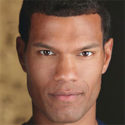
Whether Jean-Louis and I are exploring the physicality of a character, the emotional landscape of a scene, or the textual insights of a script, in every scenario, he possesses a depth of curiosity, sensitivity, and expertise that have helped me, time and time again, breathe real life into the characters I’ve played on-stage and on-screen.
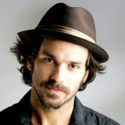
Another aspect of the Alexander Technique that was a huge asset for me on The Musketeers was 'constructive rest' at the beginning and end of each day. Jean-Louis gave me a recording he had done for Josh Brolin (I believe for W.) to listen to in my trailer whenever I could. With such a physical job -- not only the hours but the endless fight sequences, rehearsals, sword fighting, battle sequences, etc. -- the recording proved to be an essential tool to keep my body in a relaxed state and served as a reminder that 'I have time.' Very helpful in such a chaotic atmosphere as a film set. That for me is the essence of Alexander work: keep the body free of locks and blockages, so that whatever needs to express itself can come out when called upon.
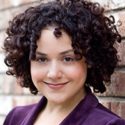
I came to the Alexander Technique because I wasn’t comfortable with my body onstage. I had just lost a great deal of weight and felt like my body wasn’t connected to my emotions as an actor. My teacher, Larry Moss, suggested that I contact Kristof Konrad and Jean-Louis Rodrigue. In Alexander Technique class, I started working on my body through singing songs. I started out as a professional singer and Kristof encouraged me to connect to my body through my music. It was an intensely freeing experience. Every time I get cast in a role, I come to Kristof. I enter the lesson with a strong idea of how my character should move and Kristof and I experiment with creating my character’s physical life, many times using animals. For my role in Electricidad, my character was trying to change from being a tough girl to finding her inner peace. She’s very misunderstood because of the way she looks and carries herself. Kristof and I built her physical life to be that of a dog, specifically a Boxer. Kristof Konrad is a kind, brilliant artist. I won’t enter the theatre without him!
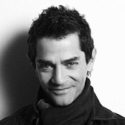
I started working with Jean-Louis Rodrigue on the Alexander Technique last year while shooting ABC's Invasion for ABC. I have been particularly concerned to use the Alexander Technique principles while working on Showtime’s The Tudors to find an ease and grace in the movement of Cromwell. The costumes are restrictive if not inhabited as they were designed to be worn – with an uprightness of posture – and I am keen that there is no stiffness to Cromwell’s physicality. I find that the consciousness of upwardness, expansion, inhibition, and release that I am learning from the Alexander Technique are crucial in imagining myself into the world of the Tudor court. Cromwell was a social outsider who had to learn to adapt to aristocratic mores and my sense is that he would have wanted to be more gentlemanly than the gentlemen “to the manor born” and not display any awkwardness. I have a sense of him gliding through the court almost effortlessly, a man at home with the machinations of power. In my own life, the experiences of release I am having with the technique are revelatory. I have studied Alexander Technique before but much less successfully than with Jean-Louis who has helped me unlock years of habit with comparative ease. I am discovering an economy of expression and a freedom from pain and tension that I had not thought possible and it is transforming my own sense of comfort in myself.

I've been working with Kristof for years and I must say working with him has become an essential part of my preparation for filming. He's an excellent Alexander Technique teacher, yes, but his work is multi-dimensional and it simply brings you closer to the truth. You will feel more confident and more at ease.
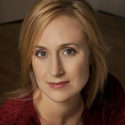
I worked extensively with Jean-Louis Rodrigue for a period of 7 weeks during the run of my one-woman show 9 Parts of Desire at the Geffen Playhouse. Jean-Louis was able to help me release emotion out of my physicality through the Alexander Technique practice and to simplify my acting choices. He watched the show a number of times and was invaluable at articulating what sort of journey he saw me take each night. He was able to see exactly how my body and psyche held its stresses and fears and he offered incredible support to help me release these fears. Our process was nothing short of life-changing for me.
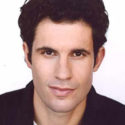
I had always heard really good things about the Alexander Technique and was very curious what it was all about. I was looking for a way to improve my posture, flexibility, and overall responsiveness both on stage and in life. After one class with Jean-Louis Rodrigue and Kristof Konrad, I was hooked! I immediately saw the connection between physicality and emotional availability. More importantly, they took the technique a step further and showed the direct application of the technique by having people do monologues or scenes. I then started studying privately with Kristof. Each week, I felt myself getting just a bit more open, a bit more connected to my body. I do a lot of plays, and Kristof and I would work on sections of the play together. For example in John Patrick Shanley’s Beggars in the House of Plenty, I portrayed a 5-year-old, an 18-year-old teenager, and a 40-year-old man. Thanks to Kristof, I was able to capture the physicality and essence of each one of these persons, and do so convincingly. Furthermore, just by working on posture, I was so much more emotionally available night after night. I felt like a whole new actor! I cannot say enough good things about Kristof, both as a person and as a teacher. If you have an open mind and a desire to learn, he will bring out the very best in you.
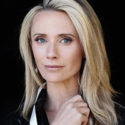
I came to study the Alexander Technique because I felt disconnected at times from my body; especially on stage. I wasn’t using my body or voice to the best capacity. Through my lessons I became more grounded and more centered. My voice is stronger now. I am less self conscious of my body, more connected to it on stage and more specific with my movements. I love working with Kristof Konrad. He helps me to center, slows me down, and helps me connect me with my voice and body. I carry our work together throughout the day/week, regardless of whether or not I am working as an artist. Kristof is a gem. He is so caring and sensitive to your needs and how to help you. He works with you at such a core level that you are bound to grow as a human being and artist all at once. I would recommend his work (and have been) to anyone serious about a future in the arts.
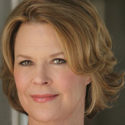
Jean-Louis Rodrigue and Kristof Konrad immediately create a level of trust and comfort in teaching the Alexander Technique which allowed all of us in the class to open up to the learning experience. I continue to work privately with them because I believe so strongly in their skill in teaching this technique, and its positive effect on my well-being. The Alexander Technique is invaluable to actors of all ages. It helps us find new depth in exploring the physical and emotional life of a character. And it has helped me correct physical issues which affect my daily life.

Jean-Louis Rodrigue's method is now an invaluable staple in my preparation for roles. Not only do I have a better understanding of my character, I have a better understanding of myself as a whole person. And I can begin to live and breathe as the character.
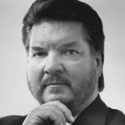
It’s all process. It’s what you’re able to plug into and understand about yourself, and also how to pick up information and handle tension that creeps in while you’re performing. We’re fighting against gravity continually – gravity is pulling down. We’re always falling into ourselves, and the big secret – which is profound, because it affects our concept about everything – is the contrast of the tension, of pulling against gravity. You see that in the light and dark of painting, the loud and soft of music. We don’t have a language to describe this reality, but the reality is the ‘up’ you feel when you have this Alexander Technique experience.
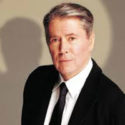
Playing a character as consistently and absurdly demanding as Salieri in Amadeus, I certainly used the Alexander Technique to great effect, because at times I simply had to wipe the slate clean and relax so then I could go into another hugely demanding emotional state. The Alexander Technique can help the actor release tension and move more freely in the character’s experience.
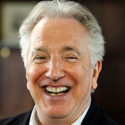
Using the Alexander Technique empowers me and gives me a balanced sense of tension rather than relying on creating tension to do something in order to produce a sound or an act that is preconceived. I realized that I cannot control a set of circumstances outside of myself so I can go on a journey relying on the state of mind and body that the Alexander Technique gives me.

Jean-Louis Rodrigue always brings a personal and positive approach to his coaching work. His involvement is timeless and complete. He is generous, genuine, and creative such that even when a character or a story is frightening, it becomes about exploring the work and being of service. Jean-Louis has a clear view of the character the actor is playing and also an awareness of the purpose and structure of the whole movie, which engages the actor’s entire intention and responsibility with the project. His work is a useful and exciting way to open my channels for my research as an actress.
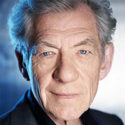
I was very enthusiastic about the value of the Alexander Technique and I made it possible for all members of the Richard III and the King Lear companies to have lessons whilst rehearsing.

I am the first student with a disability to be trained in UCLA’s MFA acting program, and I feel very fortunate to have had Jean-Louis Rodrigue as an instructor. Jean-Louis has been instrumental in helping me reconnect with my body. Many disabled people experience a loss of connection with their bodies due to pain and societal influences to ignore such pain. Excess tension is created from trying to function in a way that limits pain, but actually ends up producing more discomfort and tension. Jean-Louis understands the compensating factors involved, and has completely transformed the way in which I use my body. His expertise in the Alexander Technique allows him to help me release the tense areas. I was in a fairly constant state of pain and discomfort that I was not even aware of before studying the technique. Through his guidance, I was able to become aware of how I was misusing my body, and subsequently change my habitual tension patterns. An actor who gets to work with Jean-Louis is a lucky one indeed.

Jean-Louis Rodrigue has been my Alexander teacher since 1991. The influence he has had on my life and my professional career has been immeasurable. I only have the highest praise for his skills as a teacher. After a serious back injury I needed to alter my position for playing the flute. Because of Jean-Louis’ help, I have been able to return to work, playing and practicing my flute many hours a day. It is because I have adapted a more improved way of holding my instrument and using my body while playing my flute. Jean-Louis has helped me to eliminate the unnecessary twisting and to have more symmetry in my body while I perform. I have improved the relationship of my head to my body which has had a direct result on the sound I produce on my instrument. He has helped me with breathing and having a better flow of air into the flute, i.e., not being hampered by poor position. This too has resulted in more clarity of phrasing. Besides being a first-class, fine teacher, he is one of the kindest and gentlest people I know.
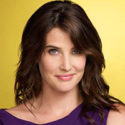
Working with Kristof Konrad has given me the gift of being able to connect with my center. He is very kind and has an extremely gentle yet persuasive touch. Before working with him, I had some trouble with my physicality on stage. I felt stuck in a lot of places, unsure of which direction to go in, and emotionally detached from my body. By working with Kristof and the Alexander Technique, I gained more connection with my body and more resonance in my voice. Also, in my day-to-day life, I can now pinpoint when my body is under stress and starts to tighten up -- and now, I have the tools to release it. Even in the middle of a very hectic shooting day, I can take a few moments to become present in myself.
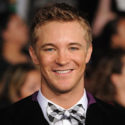
Through body awareness and proper physical alignment, Kristof Konrad helps open up channels of energy that enable full presence of being. He focuses on the details of a character that most fully connect to a visceral core -- a character’s animal, their element, their core image or symbol. He helps actors build their characters through a process of fluidity, not rigidity, always working through the body. The bottom line is Kristof will help you bring LIFE to every moment of a performance -- simple, unforced, bold, and electric!

Not only did my work with Kristof Konrad help awaken the physical and psychological life of my characters, it helped awaken my own personal life too. This technique is as beneficial to the actor as it is to the 9 to 5’er who has to sit hunched over in front of a computer screen. I now have more fun playing in my daily life and my work life.
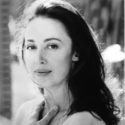
One of the greatest gifts to my work was when Larry Moss enlisted the assistance of Jean-Louis Rodrigue in our preparation for The Syringa Tree. Jean-Louis is a master of physical energy. He is an intuitive and gifted teacher who aligns the actor’s body with its own natural power through profound relaxation. He greatly enhanced my performance physically and vocally, giving me an innate understanding of the deep resource of energy within my own body. Spiritually, he linked what I was working to accomplish -- the creation of more than 20 characters in one body -- to the vast scope of energy in the universe. He grounded me to the earth and lifted my vision to a wider expanse. I use Jean-Louis’ teachings in my work, in performance every night, and as I go through my day, to keep my body and spirit calm and energized. I continue to seek his wisdom in all my work.
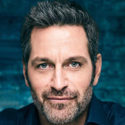
Jean-Louis Rodrigue and Kristof Konrad are not only experts in the theory and application of this incredible technique but they also pursue their work with a vibrant, contagious love. Their endeavor to help performers choose a new physical life that allows them to be more fully present — in essence, to use themselves differently — is profound, and has implications not only for life on the stage, but for life in general. Kristof and Jean-Louis create a beautiful work environment: safe, rigorous, personal — and sprinkled with a healthy dose of humor. I am so grateful for them.

I am one of the fortunate ones that was introduced to the Alexander Technique through the talented instruction of Jean-Louis Rodrigue and therefore introduced to a part of myself I would have otherwise gone a lifetime not knowing.
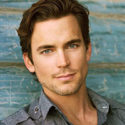
Jean-Louis Rodrigue is a teacher of the highest order. His technique is inspiring, liberating, and transformational. More importantly, he is a true artist. Being in his presence, reading his words, and engaging in his technique reminded me that regardless of what role I am working on, I can engage with the artist in myself and seek the profound in all
things.
Producers & Directors
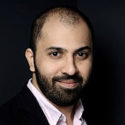
I often think of the things Jean-Louis Rodrigue and Kristof Konrad taught me with the Alexander Technique. The Lunch Box only got made because I was able to pitch it effectively after working with them. Arte France was in the audience at the Berlinale pitch, and they came on board with the film 6 months later -- filling the gap that allowed us to make the film.
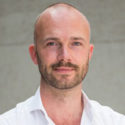
We value working with Jean-Louis Rodrigue for several reasons: his versatility and broad experience; his very pleasant, constructive, and content-driven approach to working with talented young people, encouraging and reassuring them throughout the training process; and his strong ability to build bridges between people from very different socio-cultural and professional backgrounds within an amazingly short time. Jean-Louis' continuous fresh ideas, his flexibility and openness to find new formats, and his generosity in sharing his experience are all ‘part of the package’ and make him an important mentor and one of the key contributors to our annual programme at the Berlin International Film Festival.

I found "The Syringa Tree" when it was in its infancy, in Larry Moss’s acting class in Santa Monica. One of the very first things I noticed in Pamela Gien’s work was her physical grace and her stamina, both qualities I later learned were helped immeasurably by her work with Jean-Louis Rodrigue. Jean-Louis didn’t just help Pamela focus her energy, prepare for her performances, and connect her voice to her body, but he quite literally helped her CREATE many of the characters in her remarkable piece. He helped her distinguish them from one another, and he helped her with her “magic” of morphing from one to another through his insights into how and where each one’s energy was based, and how to dance with those energies. But perhaps most importantly, to my role as producer, at least, Jean-Louis helped Pamela maintain her energy through a very, very long run. Unlike almost every other play you are likely to have seen, ours did not have an understudy, so we were totally dependent on Pamela’s being able to do a seven-show week, week in and week out, for more than a year -- without getting sick, getting injured, or having drop-offs of energy or focus. If she had succumbed to any of these afflictions the play would have suffered, my investors would have lost money, and it would have closed. That’s all just Jean-Louis’ work and the effects of his work. What none of this gets at is the pleasure Jean-Louis is to be with -- what a generous, supportive spirit he is to have around a production. Jean-Louis is not just a remarkably talented man, but a remarkable man.
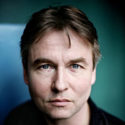
The Los Angeles Philharmonic had the pleasure of collaborating with Jean-Louis Rodrigue while he taught the Alexander Technique within the framework of the Los Angeles Philharmonic Institute from 1983 to 1988. Since then, his exceptional work has grown in demand and he has expanded the reach of his teaching to include programs at the UCLA Department of Music and the Verbier Festival and Academy. The results of his Alexander Technique lessons are often remarkable. The improvement in all aspects of playing including tone quality, rhythmic precision, and musicality can be dramatic. Jean-Louis works tirelessly to improve the quality of the Alexander Technique programs and he is committed to making it available to all artists, especially the young ones to prevent bad habits of playing and future injuries.
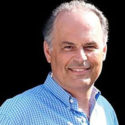
The number of musicians, singers, and actors touched by the Alexander programme is astonishing as a total of 253 lessons were given by two instructors in 2003 within the short space of three weeks. Participants of the programme learn to improve the quality of their performances while reducing the amount of tension, stress and even damage that they are doing to their own bodies. As their physical pain decreases, their expressiveness and precision increases. With such obvious success the demand for Alexander Technique lessons has inevitably grown and was even made obligatory by the Theatre Workshop professor, Larry Moss, for his acting students last summer. Jean-Louis works tirelessly to improve the quality of the Alexander Technique programme and is continuously available and open to discuss it’s philosophy and give professional advice outside of the workshops. He is committed to his work which is evident in the sensitive approach he uses to help top talents alleviate the stresses of their careers.

It is hard to describe the impact Jean-Louis has had on my work, but it is profound. When I started studying with him I recognized the power of his gift as I experienced immediate results. He helped me harness my creativity and my ability to work with actors. He helped me learn to relax in order to do my best work, a crucial lesson for me as a director that I would soon put to practical use when I got my first network television break to direct FAMILY TIES. He inspired me and continues to do so to this day.

When I was remounting my production of Heather Raffo’s 9 Parts of Desire for the Geffen Playhouse, the actress/author was beginning to reach a serious problem with the vocal challenges, as well as the mounting psychological pressure of her L.A. debut. Jean-Louis Rodrigue was referred to me by the staff at the theatre. Immediately, the three of us were comfortable with one another. I had assumed we would be needing him for a few hours a week to warm up the actress, but it became a much deeper collaboration, entirely due to Jean-Louis’ abilities and nature. He was quickly working on stage with her, helping her ground in the Alexander Technique and preparing her vocally for the task at hand -- and he stayed with the show through the entire performance schedule. Heather and I both found him to be a vital contributor to our work, and I very much look forward to working with him again. He is clearly a teacher and a collaborator of the highest caliber. I am eternally grateful to him for the success of our production in Los Angeles.
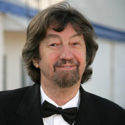
The Alexander Technique should be taught in conjunction with voice and movement during the rehearsal period of all productions.
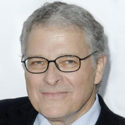
The Alexander Technique is unquestionably useful and applicable to directors and other Director Guild members who must spend their day standing up, enduring enormous stress and pressure, under difficult conditions. The aspects of the technique that I have been able to integrate into my life have been most useful in alleviating muscle tension and improving my endurance and carriage.

I began studying Alexander Technique after a friend suggested that it could help heal a lower back injury. Studying the technique allowed me to become more aware of how I moved and how, when stressed, I tended to contract my body. It was a gradual process of retraining my neurological system, eventually allowing me to heal. An unexpected effect of studying Alexander was more emotional openness. As I learned to better connect to my body by becoming aware of it, I also connected to people in a more profound way. Kristof Konrad has a unique teaching style: he created a warm and trusting environment that allowed me to retrain my body and heal. Thanks to his classes I now have more tools to deal with stress. One of Kristof´s most effective mantras is to say to yourself: “I have time.” It’s amazing how often we can forget this simple rule. Kristof´s lessons have had an incredible impact in my life.
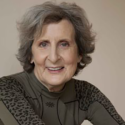
I think we need a variety of skills; the Alexander Technique helps to integrate the individual dancer, plus all the systems that he or she has been exposed to. It is important to tell a student that there is a different way of moving -- free of grit force, interruptions, habitual patterns, of tension. They need to learn to stop that.
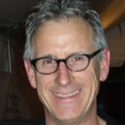
The hardest part of editing is maintaining concentration for long periods of time; then there is the stress, deadlines, tension, tired eyes, and stiff shoulders that come from those hours of hunching over the computer keyboard. Using the Alexander Technique has helped me use my body better. I take breaks, do some breathing; I move around a lot more now than I used to; I change positions; I stand up and sit down again; when I work long hours and I don’t get enough sleep, I find that taking ten minutes to lie down and practice some Alexander Technique is worth an hour of sleep. It has also helped me to better distinguish performances; I can now see if an actor is using his body well, for the character and the role, and it helps me to choose the best take.
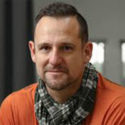
The training Jean-Louis Rodrigue gave me has empowered me with new approaches to develop signature gestures for character, a detailed knowledge of period movement and manner, principles and application of Alexander technique, analysis of animal behavior, and image work.
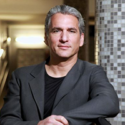
Jean-Louis Rodrigue’s awareness of how to apply the Alexander Technique principles to any of the performing arts is something that few teachers possess. At the opera training workshop at the Verbier Festival, I remember distinctly how he could help unleash a free and resplendent voice from the throat of a soprano who was doing everything to imprison it, and all this just by speaking to her and applying his hands at the right moment. Although the Alexander Technique principles are seemingly straightforward, it takes a special individual to not only master them, but to fully inhabit them as Jean-Louis does.
Teachers & Faculty
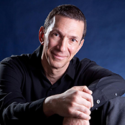
Musicians are athletes, and we need to treat our bodies with the same consciousness and care. Though it's actually quite simple, the Alexander Technique is an effective, time-honored practice that can help maximize performance and avoid injuries. I know from experience that Jean-Louis Rodrigue is one of the world's most experienced and brilliant Alexander teachers. We are so lucky to have him on our faculty -- take advantage of his gifts!
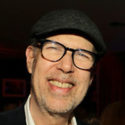
One of the most important things an actor can posses is a relationship to their own body and breath. Jean-Louis Rodrigue and Kristof Konrad work with actors in such a way that they immediately understand from deep within themselves their true impulses. Jean-Louis and Kristof are more than teachers; they each have their own spirit that enters the actor’s instrument and teaches them the truth of the character they are going to portray. Their work is invaluable and I cannot imagine doing a project without them.

Jean-Louis Rodrigue has distinguished himself by working with more professional actors than anyone else in the profession. He is the only teacher who has consistently worked closely with actors on film sets. Jean-Louis has been exposed to many genres of theater, film, and television. He has an extensive background as an actor, and is familiar with the techniques and skills that are required to create truly talented people. His teaching manner is confident and creative. His clarity of thought and skill of observation enable him to meet actors' needs. He knows how to train their voices and their bodies for maximum expressiveness.

Jean-Louis Rodrigue and Kristof Konrad’s teaching is nothing short of life transformational. Their workshops are a must for any serious actor.
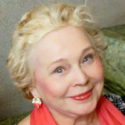
Singers, beginner through professional, need to understand the Alexander Technique principle of the ‘The Use of the Self’ which includes most importantly the prevention of habits that interfere with their potential in the singing world.
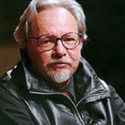
Jean-Louis Rodrigue has been an indispensable member of the acting faculty at the UCLA Department of Theater since 1988, teaching Advanced Movement for the actor and the Alexander Technique in the MFA Acting Program. Jean-Louis is internationally known as one of the pre-eminent teachers of the Alexander Technique. I personally witnessed the effectiveness of his teaching at the Verbier Music Festival in Switzerland where famous musicians were of one voice in their praise for Jean-Louis’ skills as a communicator and effectiveness as a teacher. I might add that Jean-Louis is also an excellent colleague -- a personable, outgoing individual who is capable of exercising leadership in the context of an intrinsically collaborative art form.
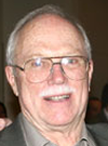
The Alexander Technique, with its potential for increasing endurance and energy, can give animators with a knowledge of this technique, an edge in a marketplace that is flooded with talent.
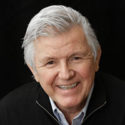
Jean-Louis Rodrigue is a gifted teacher. Some teachers are able to adjust, fix, or produce results in students immediately. However, often their work does not have a lasting value. Jean-Louis is not in that category. His understanding of the Alexander Technique and the psychology of the American actor is such that he is able to leave a lasting impression on most of the actors he encounters. It is a pleasure to be able to testify to his skill, ability, and artistry.
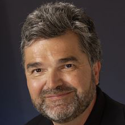
I got to know Jean-Louis Rodrigue in my role as Founding Chair of the UCLA Collaborative Centers for Integrative Medicine, and during the past few years became familiar with his therapeutic approach and his remarkable ability to teach the Alexander Technique to individual patients, as well as to demonstrate its principles in large class type settings. I am convinced that the Alexander Technique is uniquely suited to prevent strain injuries from prolonged, repeated movements, such as required by professional performers. In addition to optimizing posture and efficiency of bodily movements, the technique appears to have additional benefits in terms of giving individuals a sense of control of their body, and calming to their mind.



